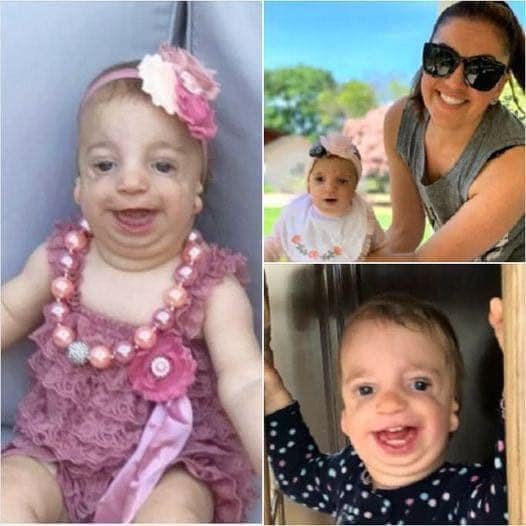
Amidst all the commotion, Eliza felt confused, scared, and lost. Instead of the celebration she had envisioned, there was silence and uncertainty.

As more specialists entered the room, Eliza couldn’t help but notice that Bella looked different. Her tiny folded ear caught her attention, although she wasn’t sure what it meant. The medical professionals continued their evaluations, and Eliza’s anxiety intensified. She finally got the chance to hold Bella briefly before she was whisked away to the Neonatal Intensive Care Unit (NICU) for further assessments.

Eliza and her husband found solace in the support of loved ones and medical experts who joined them on their journey. They reached out to friends in the medical field who connected them with top doctors and surgeons. With each passing day, Bella’s support network grew, providing strength and resources to help them make informed decisions.

The NICU became their temporary home as Bella underwent numerous x-rays, exams, evaluations, and an 8-week stay. It was an emotional rollercoaster for Eliza and her family. Leaving Bella alone in the hospital every evening broke Eliza’s heart, and the overwhelming flow of information added to the challenges of being a new mother.

After a week, Bella’s diagnosis was confirmed as Treacher Collins Syndrome. This rare genetic condition affects the development of facial bones, resulting in microtia, hearing loss, a recessed jaw, a small airway, and a hard cleft palate.

Bella underwent her first surgery at just 7 pounds to receive a g-tube for feeding. While the journey in the NICU had its share of highs and lows, Eliza and her husband remained determined to provide the best possible care for their daughter.

On December 8, 2018, Bella was finally discharged from the hospital. As parents, Eliza and her husband not only embraced their role but also took on additional responsibilities, including nursing care. They faced several emergency visits to the ER and choking incidents at home. This new phase of life demanded constant vigilance, but the training they received in the NICU equipped them to navigate these challenges.

